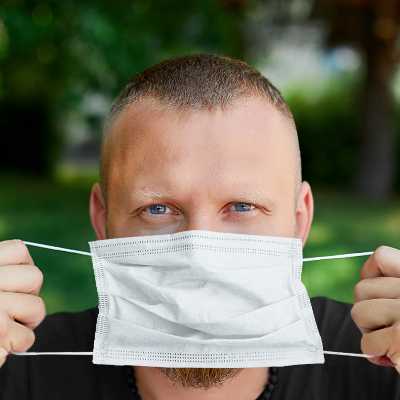What happens to your body when you take an alcohol detox?
Over 85% of the adult population has drunk alcohol at least once in their life and well over half have consumed at least one unit within the last month. If you’ve been binging more frequently due to celebrations or as a coping mechanism in difficult times, taking a temporary detox could be one of the smartest decisions you ever make.
While alcohol is often a key ingredient in the recipe for fun social activities, consuming large quantities of alcohol can pose serious threats. Given that anything over 7 units per week can be considered excessive for women (15 units for men), it’s easy to see how quickly damage may be caused. A detox gives your body a chance to recuperate and restore itself to full health. Here are some of the changes that you are likely to notice.
The liver repairs itself
The liver is one of the most affected organs by alcohol. In fact, over 45% of male and 49% of female deaths caused by liver disease are attributed to alcohol consumption. In severe cases of overconsumption, alcohol poisoning causes the liver to shut down completely. More frequently, though, individuals develop ‘fatty liver’ and cirrhosis. This results in chronic conditions that severely reduce the individual’s health and quality of life - even when it does not cause death.
Your liver’s function is to filter toxins and the average person can metabolize one unit of alcohol per hour. Anything more than this will cause damage to the liver. On a brighter note, the liver is capable of repairing and regenerating itself. Taking a short detox followed by a healthier relationship with alcohol will see your liver health significantly improve. Of course, the rate of restoration will depend on a range of factors, including the level of damage.
Blood pressure and heart health improve
As well as the liver, a host of other organs will benefit from reduced alcohol intake. High blood pressure can cause a host of issues including heart attack, stroke, vision loss, dementia, and erectile dysfunction. While the figures do change with age, a healthy blood pressure range is usually around 120/80. Having more than three drinks in one sitting can temporarily raise your blood pressure to unhealthy levels. Alternatively, long-term drinking will bring long-term issues.
You won’t have to stay sober forever to maintain a suitable blood pressure level for life. Nonetheless, taking a short-term detox - perhaps by completing a challenge like Dry January - will help stabilize the levels before you commence a healthier relationship with alcohol. In turn, this can aid your overall health by protecting your organs. As for heart health, this additionally means reducing the presence of dangerous triglycerides fats. Some evidence suggests that cancer risks may fall too.
Your body weight becomes healthier
Alcohol isn’t particularly kind to your waistline. A regular 12oz beer contains around 150 calories while a pina colada is over 500! Just four pina coladas would account for a day’s worth of calories. So, cutting back on the frequency of drinks-based social events is clearly a wise move. Not least because most people will combine their beer or wine with high-calorie meals. However, the impacts to your waistline aren’t only limited to the binge session itself.
Let’s face it; hitting the gym with a hangover isn’t likely to happen. Instead, you’ll spend the next 24 hours craving even more fatty foods. The combination of consuming more and moving less can only see your waistline expand. And once you’ve lost control of healthy habits or fallen behind on your fitness program, it can be very hard to motivate yourself. A detox can be the catalyst for weight loss. Even after ending the detox, tracking your drinks will be key. When you can see the data clearly, it should make you think twice about binging.
Your mental health improves
Your body will see a range of physical health benefits as a result of cutting back on alcohol, starting with a short-term detox. However, the mental health rewards can be equally huge. For starters, your skin and general appearance can improve, which will deliver a boost to your self-confidence levels. Studies also show, per Sleepdunwoody.com, that moderate alcohol consumption reduces sleep quality by 24%. And we all know how a good night’s sleep improves our mood.
It is believed that 15 million Americans suffer from alcohol use disorders (AUDs), with many experiencing damaged relationships as a direct consequence. When combined with the negative impacts that excessive drinking can have on your sex drive and performance, a break from alcohol can be very useful for restoring the relationships that make you happiest. Moreover, the fact that you will regain control and balance in your life will boost your wellness.
The body’s defense mechanisms get stronger
Drinking alcohol is essentially poisoning your body. While the toxicity levels are low, it does take a toll on your body’s natural defense systems as they fight the threats. Alcohol consumption can suppress immune system function while simultaneously increasing the likelihood of infectious diseases. An individual drinking session only impacts the body’s defense systems for 24 hours, but long-term drinking problems can keep your immunity low.
A detox allows your body to repair itself, which includes the immune system. As long as you avoid future alcohol abuse, you will be better equipped to fight off illnesses. This means getting sick less frequently and enjoying quicker recoveries. One in 11 drinkers has taken time off of work due to a hangover while many more get sick as a direct influence of drinking. Taking a break from alcohol helps the body recuperate to full health, which is great for prevention and management purposes. It’s like pressing the reset on your health for the better.

